Today’s Current Affairs: 22nd May 2025 for UPSC IAS exams, State PSC exams, SSC CGL, State SSC, RRB, Railways, Banking Exam & IBPS, etc
Table of Contents
Union Minister launched three new digital platforms:
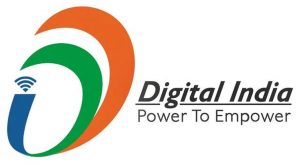
Union Minister launched three new digital platforms—Depot Darpan, Anna Mitra, and Anna Sahayata—to streamline India’s Public Distribution System (PDS), ensuring transparency, efficiency, and accountability.
- The Ministry of Consumer Affairs, Food and Public Distribution has unveiled three tech-driven initiatives to modernize warehousing, empower frontline workers, and improve grievance redressal under PM-GKAY and NFSA.
- Depot Darpan Initiative Aim is to Improve infrastructure and operational performance of food grain depots under FCI and CWC.
- Key Features:
- Digital self-assessment portal for depot-level performance tracking.
- Composite ratings based on a 60:40 ratio (Operations: Infrastructure).
- IoT integration for real-time monitoring, CCTV surveillance, and live analytics.
- Capital infusion: ₹1000 crore (FCI) & ₹280 crore (CWC) for depot upgrades.
- Anna Mitra Initiative aim is to Empower field-level PDS stakeholders through real-time data access. This Mobile app launched for FPS dealers, DFSO officers, and food inspectors. It Enables access to stock details, sales reports, alerts, and FPS performance. It Conducts geo-tagged inspections and stock verifications.
- Currently rolled out in Assam, Uttarakhand, Tripura, and Punjab in Hindi and English.
- Anna Sahayata Initiative Aim is to Provide advanced, accessible grievance redressal for PMGKAY
- Key Features: Utilizes WhatsApp, IVRS, and Automatic Speech Recognition (ASR) for filing complaints. Built for accessibility, speed, and multilingual reach. Pilot phase in Gujarat, Jharkhand, Telangana, Tripura, and Uttar Pradesh in 5 languages.
Blue Talks:
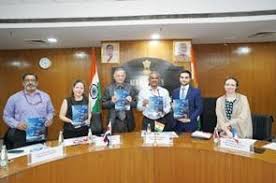
India hosted the Second Blue Talks in collaboration with France and Costa Rica to support global marine conservation goals.
- The event aimed to strengthen dialogue ahead of the 3rd United Nations Ocean Conference (UNOC3) scheduled in Nice, France.
- Blue Talks is amultilateral consultation platform that brings together governments, scientists, and civil society to build consensus for sustainable ocean use.
- Held At: New Delhi, hosted by Ministry of Earth Sciences (MoES), in partnership with the Embassies of France and Costa Rica.
- Objectives:
- Foster stakeholder dialogues on the future of ocean sustainability.
- Accelerate progress on SDG 14 (Life Below Water).
- Promote global cooperation in marine research, education, and innovation.
- Launch strategic knowledge tools.
LibTech India Report on MNREGA:
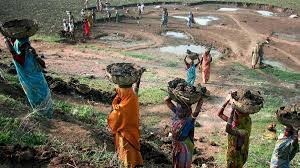
A LibTech India report on MGNREGA for FY 2024–25 highlights a stark mismatch between rising registrations (increase by 8.6%) and declining employment delivery (decline by 7.1%), mainly due to delayed payments and budget shortfalls.
Data on MGNREGS:
- Registrations: Increased from 13.80 crore (FY24) to 14.98 crore (FY25), a rise of 8.6%.
- Employment Delivery: Dropped by 7.1%; only 7% of households got 100 days of work.
- Person-days: Fell from 52.42 to 50.18 days per household (↓4.3%).
- Fund Utilisation: ₹82,963 crore spent (106% of ₹86,000 crore budgeted).
- State Trends: Decline in Odisha (−34.8%), TN (−25.1%), Rajasthan (−15.9%). Increase in Maharashtra (+39.7%), Bihar (+13.3%).
MGNREGA:
- A social security and livelihood assurance program guaranteeing 100 days of wage employment to rural households.
- Launched in: 2005 under the Mahatma Gandhi National Rural Employment Guarantee Act.
- Ministry: Ministry of Rural Development.
- Objective is to Enhance livelihood security by providing employment in unskilled manual labour and building rural assets.
- Key Features: Demand-driven, legal entitlement to work, time-bound wage payment (within 15 days), compensation for delays, emphasis on transparency via MIS and social audits.
Mizoram India’s First Fully Literate State:
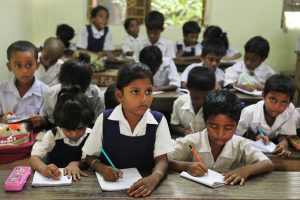
The Chief Minister of Mizoram officially declared the state as fully literate. With this, Mizoram has become the first state in India to achieve complete literacy.
- Earlier, on 24.06.2024, Ladakh became the first administrative unit to declare full literacy.
- A state is considered fully literate when its literacy rate exceeds 95%, as per the benchmark defined under the ULLAS scheme.
- Mizoram achieved a literacy rate of 98.2% as per the PLFS 2023–24, surpassing the threshold. Mizoram (literacy rate in 2011 Census: 91.33%)
- Initiative Used: Nav Bharat Saaksharta Karyakram under ULLAS.
- ULLAS Scheme (Understanding Lifelong Learning for All in Society) launched: FY 2022–2027 Centrally Sponsored Scheme
- Ministry: Ministry of Education
- Objectives:
- Promote inclusive adult education aligning with NEP 2020
- Target non-literates aged 15+ across India
- Enhance functional literacy, digital skills, and vocational learning
India’s Spatial Infrastructure for National Security:

China’s Beidou satellite navigation system is under scrutiny after reports suggested it may have been used by militants during the Pahalgam terror attack in India, raising serious national security concerns for India.
- Spatial infrastructure includes satellite-based systems for positioning, navigation, and timing (PNT), such as GPS, India’s NavIC, and China’s Beidou.
- Governed by international treaties (e.g., ITU, COPUOS) and domestic space/telecom regulations like India’s Satcom Policy.
- Core Features:
- High-precision real-time tracking and location services. Integration with communication networks and AI-based surveillance tools. Offers Short Messaging Services (SMS), encrypted communications, and location analytics (as in Beidou).
- Role in National Security: Tactical Military Operations: Enables secure communications and troop coordination in surveillance-heavy or mobile-network-denied regions. E.g. Beidou SMS capability was likely used in Pahalgam attack to evade detection.
- Border Monitoring & Drone Navigation: Crucial for precision drone strikes and patrol management.
- Disaster Management & Infrastructure Security: Used in coordination with telecom networks and IoT sensors for early warning systems.
- Cybersecurity Backbone: Supports encryption, network resilience, and secure data routing through quantum-safe protocols.
NavIC & GAGAN Systems:
- NavIC offers indigenous navigation services across India and nearby regions.
- GAGAN augments GPS signals for high-precision use in aviation and defense sectors.
- Defence Space Agency (DSA) Coordinates space-based assets for military use, enhancing surveillance, navigation, and secure communications.
- RISAT & EOS Satellite Series Provide real-time radar imaging for border monitoring, terrain mapping, and disaster response.
Climate Physical Risk (CPR):

Union Home Minister recently emphasized the need for proactive climate risk assessments amidst rising extreme weather events. The article highlighted India’s fragmented approach to Climate Physical Risk (CPR) and called for a unified national framework.
- Climate Physical Risk (CPR) refers to potential damage from acute (e.g. floods, heatwaves) and chronic (e.g. shifting rainfall patterns, droughts) climate events.
- As per IPCC, CPR = Hazard × Exposure × Vulnerability.
- Hazard refers to climate-induced events like floods, cyclones, droughts, or wildfires that pose direct environmental threats.
- Exposure denotes the presence of people, infrastructure, or economic assets in areas susceptible to hazards.
- Vulnerability captures the ability of systems, communities, or infrastructure to withstand and bounce back from these
WHO Pandemic Agreement:
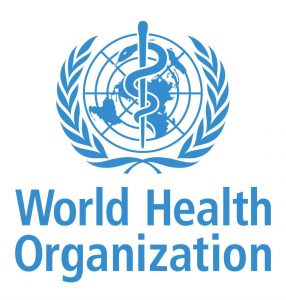
The World Health Assembly formally adopted the WHO Pandemic Agreement, a global legal treaty to improve preparedness for future pandemics.
- A legally binding international treaty under Article 19 of the WHO Constitution — only the second such treaty after the 2003 Framework Convention on Tobacco Control.
- Aim is to ensure equitable access to vaccines, diagnostics, and therapeutics, and build a coordinated global response mechanism during future pandemics.
- Becomes enforceable once 60 countries ratify
- Countries retain sovereignty over domestic health decisions and WHO cannot mandate laws or restrictions.
- Members Involved: Adopted by 124 countries, with 11 abstentions. The US withdrew from negotiations following policy shifts under President Trump.
Features of the WHO Pandemic Treaty:
- Pathogen Access and Benefit Sharing (PABS): countries must share pathogen samples and genome data; in return, pharma companies must provide: 10% of vaccine output free to WHO, 10% at affordable prices to low-income countries.’
- Technology Transfer & Capacity Building: Encourages knowledge-sharing and tech transfer to enable local production of vaccines and treatments in developing nations.
- Equity-Based Distribution Framework: Prioritises public health risk over geopolitics in vaccine allocation. Prevents vaccine hoarding and promotes transparent supply chains.
- Global Supply Chain & Financing Mechanism: Calls for a Coordinated Financial Mechanism and a Global Supply Chain and Logistics Network (GSCL) for emergency response. Ensures countries in crisis receive timely access to life-saving resources.
- National Health Policy Alignment: Countries must develop frameworks to guarantee access to pandemic-related innovations derived from public funding.
- One Health Approach: Emphasises interconnectedness of human, animal, and environmental health, promoting early detection and prevention of zoonotic diseases.
e-Zero FIR Initiative:

The Indian Cybercrime Coordination Centre (I4C) has launched the e-Zero FIR initiative, which automatically converts financial cybercrime complaints over ₹10 lakh into First Information Reports (FIRs).
- The e-Zero FIR initiative is a new mechanism where financial cybercrime complaints involving fraud above ₹10 lakh are automatically converted into FIRs if reported via the 1930 helpline or the National Cybercrime Reporting Portal (NCRP).
- This system has been launched on a pilot basis in Delhi by the Indian Cybercrime Coordination Centre (I4C) under the Ministry of Home Affairs (MHA).
- The initiative aims to speed up investigations into large-scale cyber frauds and ensure swift action against cybercriminals.
- It addresses the longstanding grievance of victims who face delays in FIR registration and difficulty recovering stolen money.
- The system is aligned with the provisions of Sections 173(1) and 1(ii) of the newly enacted Bharatiya Nagarik Suraksha Sanhita (BNSS).
- The e-Crime Police Station of Delhi has been officially notified for e-FIR registration and case transfer under these legal provisions.
- A Zero FIR can be registered at any police station, regardless of the place of the crime.
- It ensures that jurisdictional issues do not delay investigation and provides legal urgency for prompt action.
- Introduced following the Justice Verma Committee recommendations post the Nirbhaya case (2012), it reinforces victim-centric policing and quick redressal.
DoT Launches Financial Fraud Risk Indicator to Tackle Cyber Crime:
The Department of Telecommunications (DoT) has introduced the Financial Fraud Risk Indicator (FRI), a powerful analytics tool under the Digital Intelligence Platform (DIP). This initiative aims to identify and block mobile numbers linked to potential financial frauds, thereby bolstering cyber safety and helping institutions such as banks and UPI platforms prevent fraudulent transactions.DoT officially announced the rollout of FRI to financial stakeholders, marking a crucial step toward real-time fraud prevention and cybercrime mitigation in India’s digital ecosystem. The move follows a rise in cybercrime linked to mobile numbers used for digital payments, especially UPI transactions.
India Reaffirms Global Health Commitment at 78th World Health Assembly:
At the 78th World Health Assembly in Geneva, held on May 21, 2025, India strongly reaffirmed its commitment to global health equity and universal health coverage. Addressing the plenary, Union Health Secretary Punya Salila Srivastava highlighted India’s flagship initiatives, including Ayushman Bharat, and underscored the country’s role in advancing equitable healthcare, improving maternal and child health, and eliminating communicable diseases.India’s participation in the 78th World Health Assembly (WHA) is significant in the context of global health diplomacy. It not only showcased India’s domestic healthcare advancements but also stressed the need for a fair and binding global pandemic agreement. The emphasis on equitable access, technology sharing, and health sovereignty positions India as a strong voice for developing nations in shaping global health policies
India’s leading green finance institution, IREDA, has achieved a significant milestone by receiving an ‘Excellent’ rating:
The Indian Renewable Energy Development Agency Ltd. (IREDA), India’s premier green financing non-banking financial company (NBFC), has earned an ‘Excellent’ rating from the Department of Public Enterprises (DPE) for the financial year 2023-24. IREDA is now ranked among the top 4 Central Public Sector Enterprises (CPSEs) in the country, and it leads the Power and NBFC sectors.IREDA has been awarded the top performance rating by the Department of Public Enterprises (DPE) for its performance-based Memorandum of Understanding (MoU) for FY 2023-24. This recognition reflects the company’s strong financial and strategic performance and its leadership role in renewable energy financing in India.
Supreme Court Mandates Three Years of Legal Practice for Judicial Service Entry:
The Supreme Court of India mandated a minimum of three years of legal practice as a prerequisite for applying to the Civil Judge (Junior Division) post. The ruling, led by a bench headed by Chief Justice of India B.R. Gavai, aims to enhance the quality of the judiciary by ensuring that candidates have hands-on experience in litigation before assuming judicial roles.The decision is significant because it restores a legal practice requirement that had been waived by several High Courts, allowing fresh law graduates with no courtroom experience to become judges. The Supreme Court found this practice ineffective over the past two decades and deemed it detrimental to judicial efficiency and public trust.
FSSAI Launches Crackdown on Illegal Fruit Ripening Practices:
The Food Safety and Standards Authority of India (FSSAI) has directed all states and Union Territories to intensify monitoring and enforcement against the use of banned ripening agents like calcium carbide. This directive, aimed primarily at curbing unsafe practices in fruit markets and storage facilities, comes in light of rising concerns over the harmful effects of chemically ripened mangoes on public health.The FSSAI issued a nationwide directive on May 21, 2025, asking food safety commissioners and regional directors to conduct special enforcement drives to prevent the use of prohibited chemicals, especially calcium carbide, in ripening fruits like mangoes.




